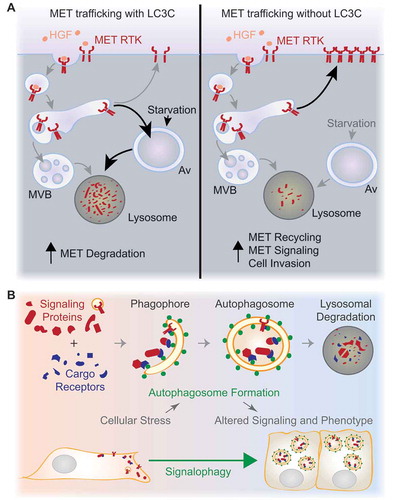Figures & data
Figure 1. Regulation of cell signaling by autophagy. (A) If LC3C is present (left), localization of the HGF-activated MET RTK to an autophagic degradative pathway is enhanced by starvation-induced upregulation of autophagy. In cancers where LC3C expression is suppressed (right), MET is not targeted for autophagic degradation, resulting in increased MET recycling, prolonged signaling, and enhanced HGF-stimulated migration and invasion. MVB, multivesicular body; Av, autophagosome. (B) Increased autophagosome formation is induced in response to diverse cellular stresses, and can promote homeostasis through degradation of cellular components, including damaged organelles and pathogens. Autophagy also selectively degrades proteins recruited through binding to cargo receptors that interact with Atg8-family proteins (green circles), such as LC3C. The selective sequestration and lysosomal degradation of signaling proteins, termed signalophagy, could allow autophagy to participate in stress-responsive selective remodeling of cell signaling. This regulatory function for autophagy could be an important contributor to cellular adaptation to stress.

